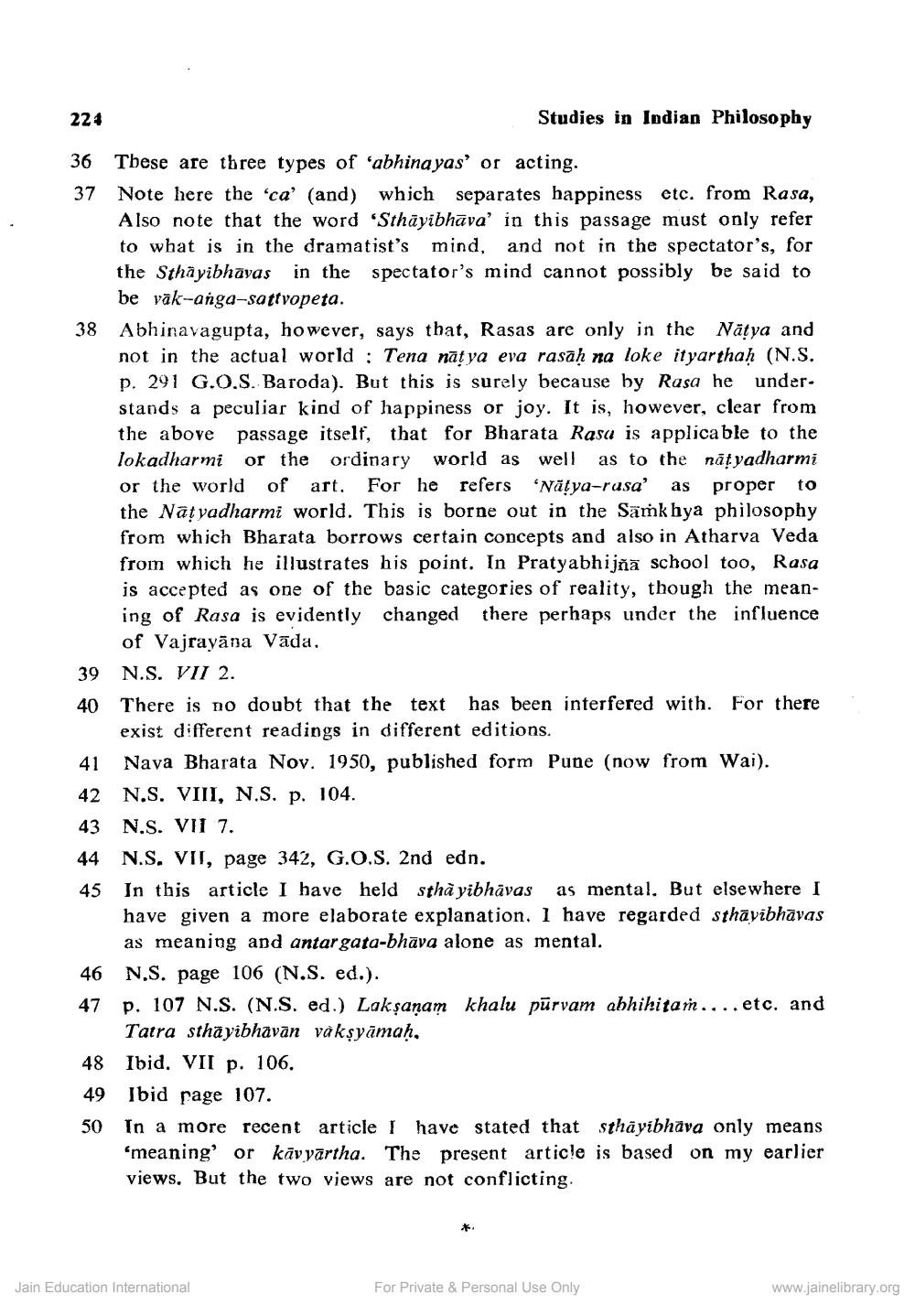________________
224
Studies in Indian Philosophy
36 These are three types of 'abhina yas' or acting. 37 Note here the 'ca' (and) which separates happiness etc. from Rasa,
Also note that the word 'Sthāyibhāva' in this passage must only refer to what is in the dramatist's mind, and not in the spectator's, for the Sthayibhavas in the spectator's mind cannot possibly be said to
be vāk-anga-sattvopeta. 38 Abhinavagupta, however, says that, Rasas are only in the Natya and
not in the actual world : Tena nāt ya eva rasaḥ na loke ityarthaḥ (N.S. p. 291 G.O.S. Baroda). But this is surely because by Rasa he under. stands a peculiar kind of happiness or joy. It is, however, clear from the above passage itself, that for Bharata Rasa is applicable to the lokadharmi or the ordinary world as well as to the nāțyadharmi or the world of art. For he refers "Nātya-rasa' as proper to the Natyadharmi world. This is borne out in the Samkhya philosophy from which Bharata borrows certain concepts and also in Atharva Veda from which he illustrates his point. In Pratyabhijñā school too, Rasa is accepted as one of the basic categories of reality, though the meaning of Rasa is evidently changed there perhaps under the influence
of Vajrayāna Vāda. 39 N.S. VII 2. 40 There is no doubt that the text has been interfered with. For there
exist different readings in different editions. 41 Naya Bharata Nov. 1950, published form Pune (now from Wai). 42 N.S. VIII, N.S. p. 104. 43 N.S. VII 7. 44 N.S. VII, page 342, G.O.S. 2nd edn. 45 In this article I have held sthà yibhāvas as mental. But elsewhere I
have given a more elaborate explanation. I have regarded sthayibhavas
as meaning and antargata-bhava alone as mental. 46 N.S. page 106 (N.S. ed.). 47 p. 107 N.S. (N.S. ed.) Laksanam khalu pūrvam abhihitam....etc. and
Tatra sthãyibhavan và kỹyamah, 48 Ibid. VII p. 106. 49 Ibid rage 107. 50 In a more recent article I have stated that sthāyibhāva only means
'meaning' or kāvyārtha. The present article is based on my earlier views. But the two views are not conflicting.
Jain Education International
For Private & Personal Use Only
www.jainelibrary.org




